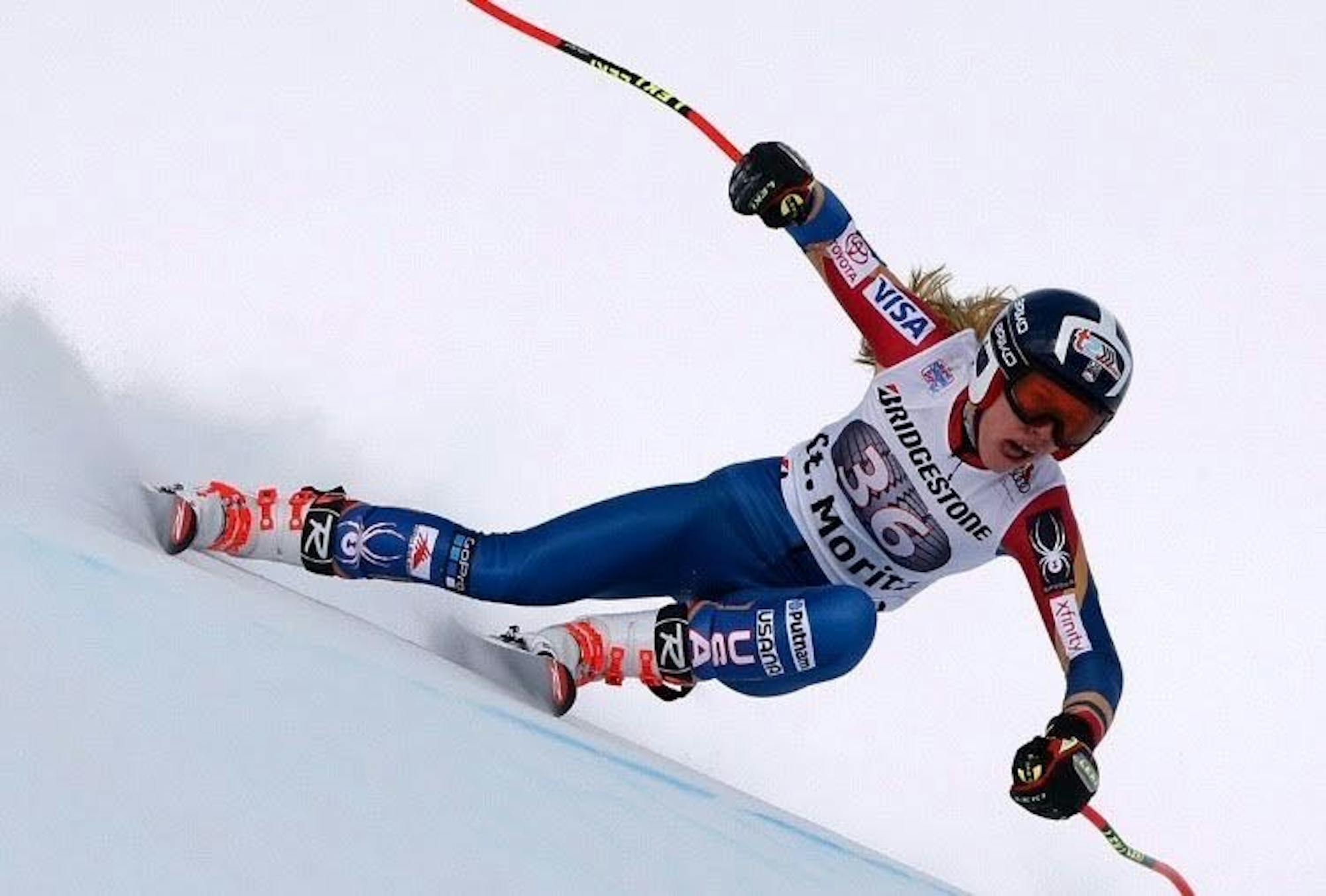Alpine skier Tricia Mangan ’19 didn’t participate in Dartmouth’s Winter Carnival this weekend, but not without good reason — she just happened to be racing at Snow King Mountain Resort in Wyoming.
This season, skiing for the Dartmouth team became the latest addition to Mangan’s extensive resume, one that features four years on the U.S. national team and the 2018 Olympic team. Yet this season has been Mangan’s first skiing for the Big Green.
For any skier accustomed to the world of national and international racing, where skiing is an individual sport, the team component of collegiate racing is an adjustment. Her results for Dartmouth so far this season were skewed by a concussion-inducing fall at her first carnival, but she’s recovered quickly for second and fourth place finishes at the University of New Hampshire and University of Vermont carnivals, respectively.
“I’m definitely learning a lot, the style of racing,” Mangan said, “I always want to go fast, and especially when the team is counting on you to do well it’s just, like, a different sort of mindset.”
It hasn’t been a complete turn-around from what she’s used to, however, as Mangan is still competing for the national team. She answered questions for this article in a free minute during a weekend of racing for the Nor-Am Cup, a tour of ski competitions in the U.S. and Canada organized by the International Ski Federation. Competing in all of these events requires Mangan to commit 25 or 30 hours a week to ski racing and balancing a full academic load on top of that. According to Dartmouth team captain Alexa Dlouhy ’19, this term is actually atypical for Mangan because the three classes she is taking are fewer than a normal term for her.
“She clearly has a very strong work ethic and good time management skills, that’s for sure,” Dlouhy said.
The success Mangan has had and the level her skiing has reached is particularly exceptional given the unconventional path she took to this point. She grew up skiing on a small mountain in western New York, where she joined a racing program with her brothers at the age of 6. In comparison with the other skiers she was competing against for a spot on the national team, Mangan had limited snow time, as she had grown up training only a few times a week. She also chose not to attend a skiing academy, the favored path of most skiers of her caliber and of half of the Dartmouth women’s alpine team.
In addition to the coaches she had in her youth, Mangan sees her brothers and her own competitive spirit as playing a huge role in developing her speed. Growing up, she was constantly driven to match and then exceed her brothers’ pace.
“You need someone else that’s faster than you to push you,” Mangan said.
As for how she envisioned her future in skiing, Mangan said she never specifically pursued — let alone expected — the opportunities she’s had on the U.S. and Olympic teams.
“I didn’t know what World Cup racing was,” she said. “I didn’t even really know what the U.S. ski team was. I honestly just cared about getting faster, because I hate losing and I’m super competitive.”
This competitive drive has served Mangan well, allowing her to excel in a pool of skiers more formally credentialed than she is. She has the mental strength and a strong understanding of the sport that compensates for what she lacks in extensive training.
“I think that there are some people who are really perfect skiers and just, like, are technically better skiers, and that was never me,” Mangan said. “But I make up for that on race day just with my ability to just kind of perform.”
According to women’s alpine coach John Dwyer, Mangan combines her natural athleticism with a high ski IQ to create a raw talent and intuitive understanding of the sport.
“Where some people it might take them a week or two weeks or even four years in college to figure it out, she’s able to listen to what coaches have to say and execute it pretty easily,” Dwyer said.
Despite what initially would seem to be a lack of experience, Mangan is now one of the most experienced skiers on the Dartmouth team, and her teammates benefit from her strong command of the sport.
“It’s pretty awesome to see how she’s embraced the role of being a new member yet a very experienced skier,” Dlouhy said. “She’s definitely someone people go to for technical and tactical advice.”
Given how well she’s done on the national team, the Big Green is lucky Mangan decided to join the collegiate scene this year in addition to the national circuit. Most skiers will either do one or the other, as both teams are a huge time commitment in their own right.
“Being able to do both is a very unique opportunity,” Mangan said. “And actually the best path for my skiing right now to help me get faster.”




